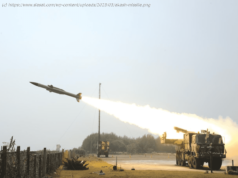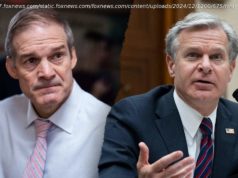The reaction is seen as undercutting those trying to change Iran’s government from within.
TEHRAN, Iran — President Trump’s refusal to certify the Iran nuclear deal has sparked a new war of words between the Islamic Republic and America, fueling growing mistrust and a sense of nationalism among Iranians.
The speech has served to unite Iranians across the political spectrum – fed also by anger over Trump’s refusal to refer to the Persian Gulf, the waterway through which a third of all oil traded by sea passes, by name.
The reaction is undercutting those trying to change Iran’s clerically overseen government from within, and likely will strengthen the hand of hardliners who long have insisted the U. S. remains the same “Great Satan” denounced in the 1979 Islamic Revolution.
“Under the deal, it was supposed to be that we get concessions, not that we give more concessions,” the hardline newspaper Kayhan raged.
Iranian officials and media outlets Saturday uniformly condemned Trump for accusing Iran of violating the spirit of the 2015 accord and calling on Congress to toughen the law governing U. S. participation. Trump said he was not ready to pull out of the deal but warned he would do so if it were not improved.
In a televised speech shortly after Trump made his announcement, Iranian President Hassan Rouhani said his country would remain in the deal, but criticized Trump’s words, referring to them as “cursing and futile accusations.”
Rouhani also said Iran would continue to build and test ballistic missiles, something allowed under the nuclear deal though Americans believe it violates the accord’s spirit.
“We have always been determined, and today we are more determined,” Rouhani said. “We will double our efforts from now on.”
The Iranian president offered a list of moments that showed the United States could not be trusted by the average Iranian, dating back to the 1953 CIA-backed coup that cemented U. S.-backed Shah Mohammad Reza Pahlavi’s power.
Like many others in Iran, Rouhani focused on the fact that Trump used the term “Arabian Gulf” to refer to the Persian Gulf. Some traded online video clips of past American presidents calling it the Persian Gulf, while one semi-official news agency published a photo gallery with the title “Persian Gulf forever.”
Posts with the hashtag PersianGulf and the Iranian flag circulated on social media.
The name of the body of water has become an emotive issue for Iranians who embrace their country’s long history as the Persian Empire, especially as U. S. Gulf Arab allies and the American military now call it the “Arabian Gulf.” Rouhani even suggested during his speech that Trump needed to “study geography.”
“Everyone knew Trump’s friendship was for sale to the highest bidder. We now know that his geography is, too,” Iranian Foreign Minister Mohammad Javad Zarif wrote on Twitter.
Later in the day, Zarif said that “Trump and the U. S. are not in a position to certify Iran’s compliance to its commitments” under the deal.
Zarif said the U. N. nuclear watchdog, the International Atomic Energy Agency, is the only authorized body for certification of the deal.
He also criticized Trump for calling Iran a rebellious government. Without using any name, he added: “Rebellious is the one who is not loyal to international regulations. The individual who tramples commitments of its country deserves the title more than anybody else.”
Send questions/comments to the editors.






